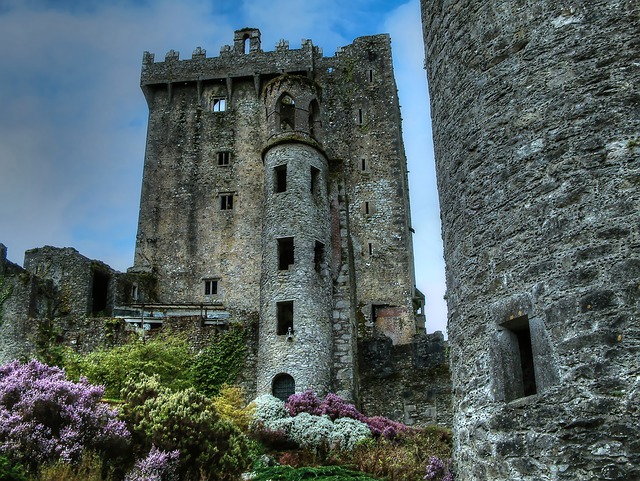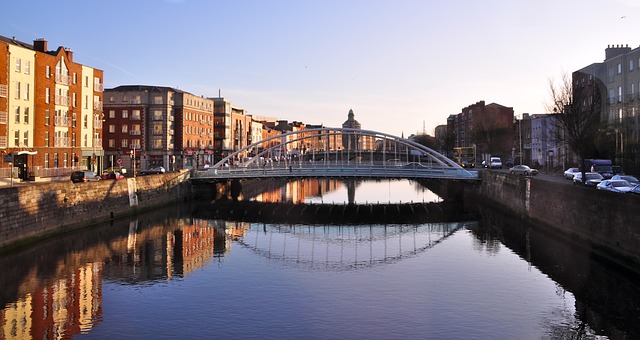Introduction to the Irish Language
The Irish language, also referred to as Gaeilge or Irish Gaelic, has long been spoken by the Irish people and was commonly spoken by many ancestors of those who are of Irish descent. Today, Irish Gaelic is still spoken by nearly 2 million speakers in Ireland and in parts of the United Kingdom, the United States, Canada, and Australia. Irish is a Goidelic language under the Celtic languages branch of the Indo-European language family.
Irish Gaelic is closely related to Manx, a Celtic language of the Isle of Man or Mann, which you can learn for completely free on Glossika. Irish also shares a lot of similarities with other Goidelic languages like Scottish Gaelic or Gàidhlig. Similarities between Irish and the Goidelic languages mainly include grammar and vocabulary but can be different in terms of pronunciation and spelling. There is quite a bit of mutual intelligibility between Irish and its most closely similar relatives. Irish Gaelic is also related, though not quite so closely, to other Celtic languages of the Brythonic branch such as Welsh, which you can now learn for free on Glossika, Cornish, and Breton. These languages don't share nearly as many similarities with Irish but are somewhat similar in grammar.

Irish Gaelic has three major dialects in Munster, Connacht, and Ulster, which are generally spoken in the provinces of Munster, Connacht, and Ulster respectively. Munster can be found primarily in Ireland in the Gaeltacht areas of Kerry, Ring, Muskerry, and more. Connacht is spoken mainly in the region of Connemara in County Galway and the Aran Islands, which consists of three isles to the west of Ireland. Ulster is an Irish dialect spoken in the province of Ulster and is more similar to both Scottish Gaelic and Manx than other Irish dialects. Ulster can be divided into two sub-dialects, West Ulster Irish or Donegal Irish, which is spoken in County Donegal, and East Ulster Irish.
Just like many other languages, Irish has a number of words that have carried on over to the English language. Below, you'll find a list of some of these words of Irish origin that have assimilated into the English vocabulary.
| English | Irish | Meaning |
|---|---|---|
| galore | go leor | to sufficiency |
| slew | sluagh | multitude |
| bother | bodhraim | noise |
| hooligan | houlihan | criminal |
| slob | slaba | slime |
| whisky | uisce beatha | water of life |
| smithereens | smidirín | small fragments |
Interesting Facts about the Irish Language
Irish Gaelic uses a rather unusual Verb – Subject – Object word order that is shared by only 9% of the world's languages. So if you were to say something like "I eat oranges", in Irish it would translate directly to "eat I oranges".
There are no words for "yes" and "no" in Irish Gaelic. Instead, the verb form simply changes to denote confirmation or declination. So if you were to ask something like "do you eat oranges?" the way you would answer this question is equivalent to saying "(I) eat oranges" or "(I) don't eat oranges". So essentially, you're just taking a part of the question and answering it either positively or negatively.

Start Learning Irish Now!
Get in touch with Irish language and heritage. As many people throughout Western society, including the United States, tend to have some kind of Irish ancestry, learning Irish will help you get in touch with your roots. By learning Irish, you're opening yourself up to a great deal of rich Irish culture and history.
Below, you'll find several examples of essential phrases that give you a good idea of what to expect when it comes to the Irish language. You'll also find some audio samples below of Irish sentences so you can familiarize yourself with how the language sounds.
| English | Irish |
|---|---|
| Hello | Dia duit |
| What's your name? | Cén t-ainm atá ort? |
| My name's ... | ... atá orm |
| Where are you from? | Cé as thú? |
| I'm from ... | Is as ... mé |
| How old are you? | Cén aois thú? |
| I'm twenty (20) years old | Tá mé fiche bliain d'aois |
| Excuse me | Gabh mo leithscéal |
| I'm sorry | Tá brón orm |
| Thank you | Go raibh maith agat |
| I don't know | Níl a fhios agam |
| I don't understand | Ní thuigim |
| How are you? | Cén chaoi a bhfuil tú? |
| I'm fine | Tá mé togha |
| Can you speak more slowly? | An bhfuil tú in ann labhairt níos moille? |
What's your name?
Where are you from?
Try Glossika's Irish Audio Training for free!
Glossika is a team of linguists and polyglots dedicated to changing the way people learn foreign languages to fluency through a natural immersion self-training method. If you are looking for a method to help you breakthrough to fluency, be sure to try Glossika for free!
No obligation and no credit card required! Click to get started 👇🏻




